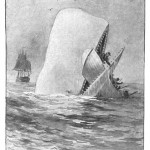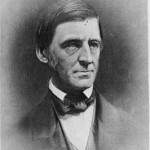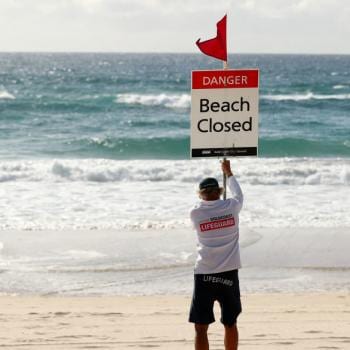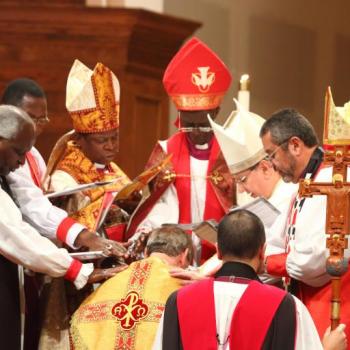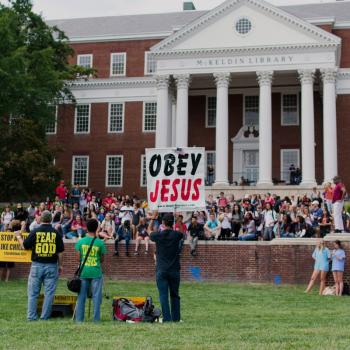Anthony Esolen is discouraged as many Christians living the United States are. The legal process does not seem to be favoring Christian conservatives and the political process seems to be undermining the privilege that Christianity used to enjoy. Here‘s how Esolen puts it:
We no longer live in a culturally Christian state. We do not live in a robust pagan state, such as Rome was during the Pax Romana. We live in a sickly sub-pagan state, or metastate, a monstrous thing, all-meddlesome, all-ambitious. The natural virtues are scorned. Temperance is for prigs, prudence for sticks in the mud who worry about people who don’t yet exist. A man who fathers six children upon three women and now wants to turn himself into a “woman” attracted to other women—he is praised for his courage. Justice means that a handful of narrowly educated and egotistical judges get to overturn human culture and biology, at their caprice.
What then should Christians do? He has seven suggestions:
1) Build new schools, reform old schools, and abandon irreformable ones.
2) Restore your parish church and bring reverence back to the liturgy.
3) Acquaint yourself with the proper use of the zipper.
4) Be social.
5) Read good books.
6) Recover the human things.
7) Pray like the pilgrim you are.
To give a flavor for the specifics of Esolen’s proposal, here’s what he says for #3:
We’ve all been scorched by the sexual revolution. The ancient Christians knew they were living among hedonists, but plenty of the pagans, especially those who lived outside of the cities (Latin paganus = hayseed), were old-fashioned in their mores. The Christians could say that they honored the virtue of chastity, which the pagans recognized but often violated. We cannot say that now. We have to tell ourselves and our children the truth. There is no way to make it sound nice. “We are Christians, they are not. How God judges them is not ours to know. Our first task is to follow God’s law ourselves, before we can witness to them. We do not fornicate. We do not divorce. We do not engage in sodomy. We do not use porn. We do not flood women’s bodies with synthetic and carcinogenic hormones. We do not care for obscenities in film. We do believe in marriage according to the evident design of God, imprinted upon our bodies male and female. We encourage boys to be boys and girls to be girls.” And then—where are the chaperoned dances? Where are the concerts? Where are the matchmakers? Where are the healthy customs whereby the older generation made sure that the younger generation would, ahem, get on with the great and innocent business of new life? Establish them. Begin.
Esolen is writing in a Roman Catholic publication, but his concerns seem eminently sensible even from the Protestant side of the Tiber.
The reason for bringing this up is to notice the disparity between Esolen’s concerns and those of his Holy Father, Pope Francis. The latter has made all sorts of headlines with a papal encyclical about the environment (aside from all the other things he says as one of the most accessible popes in history). Here is part of the pope’s description of the current crisis facing human beings:
20. Some forms of pollution are part of people’s daily experience. Exposure to atmospheric pollutants produces a broad spectrum of health hazards, especially for the poor, and causes millions of premature deaths. People take sick, for example, from breathing high levels of smoke from fuels used in cooking or heating. There is also pollution that affects everyone, caused by transport, industrial fumes, substances which contribute to the acidification of soil and water, fertilizers, insecticides, fungicides, herbicides and agrotoxins in general. Technology, which, linked to business interests, is presented as the only way of solving these problems, in fact proves incapable of seeing the mysterious network of relations between things and so sometimes solves one problem only to create others.
21. Account must also be taken of the pollution produced by residue, including dangerous waste present in different areas. Each year hundreds of millions of tons of waste are generated, much of it non-biodegradable, highly toxic and radioactive, from homes and businesses, from construction and demolition sites, from clinical, electronic and industrial sources. The earth, our home, is beginning to look more and more like an immense pile of filth. In many parts of the planet, the elderly lament that once beautiful landscapes are now covered with rubbish. Industrial waste and chemical products utilized in cities and agricultural areas can lead to bioaccumulation in the organisms of the local population, even when levels of toxins in those places are low. Frequently no measures are taken until after people’s health has been irreversibly affected.
22. These problems are closely linked to a throwaway culture which affects the excluded just as it quickly reduces things to rubbish.
It is a decidedly different take on the difficulties that are facing Christians. Esolen’s concerns seem humanistic, moral, and spiritual. Pope Francis’ seem material and economic (though not indifferent to spiritual and moral truths). These two assessments need not be in opposition.
But they do raise questions about discernment. Who is more discerning about the times in which Christians live? Maybe Esolen’s outlook is provincial and reflects only those matters that affect Christians in the United States. But Esolen is part of Pope Francis’ flock. And the universal pastor who resides in Rome has yet to say anything about what’s happening in places like the United States (and oh by the way Ireland)o one of his communion’s sacraments.

